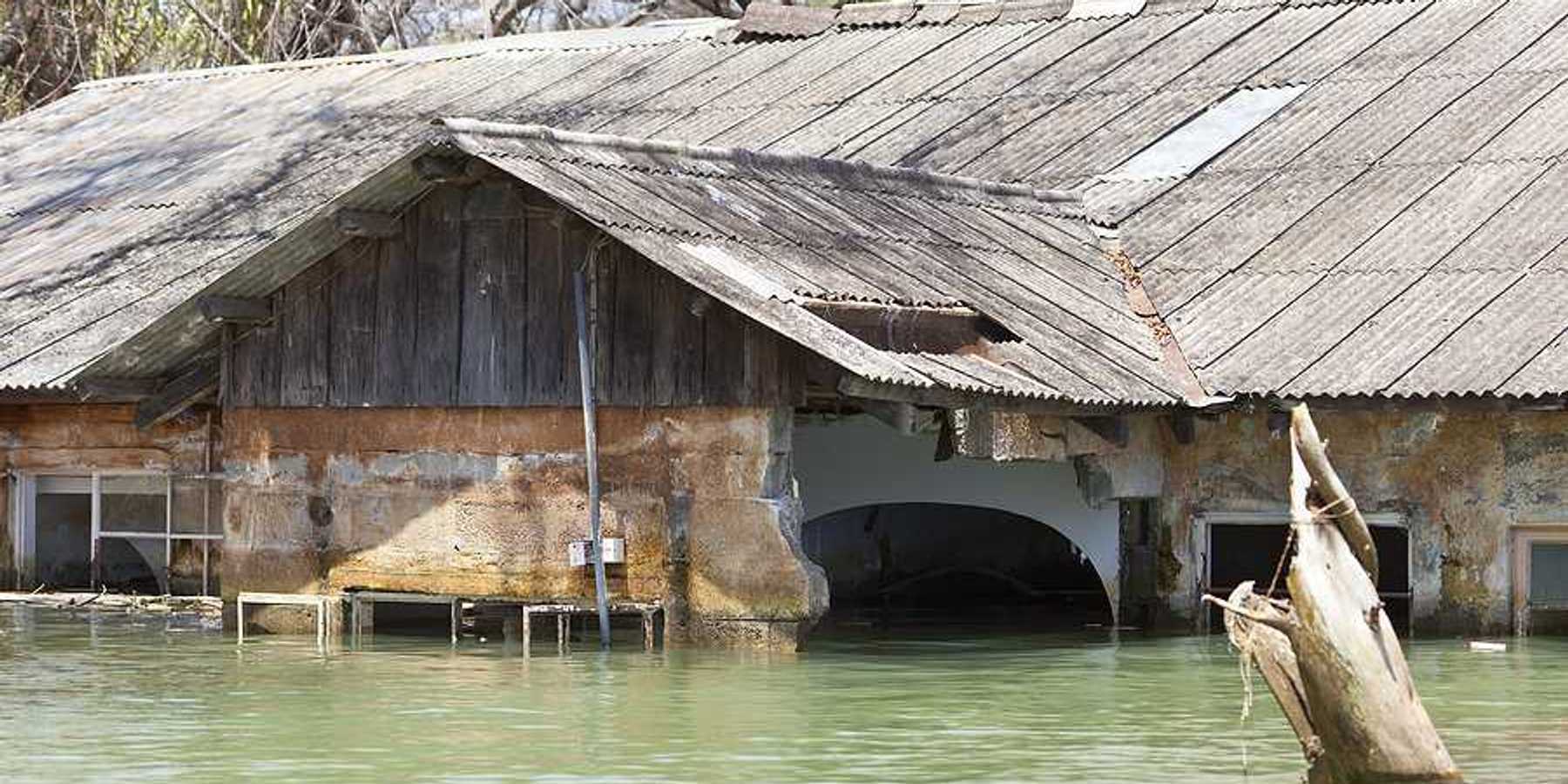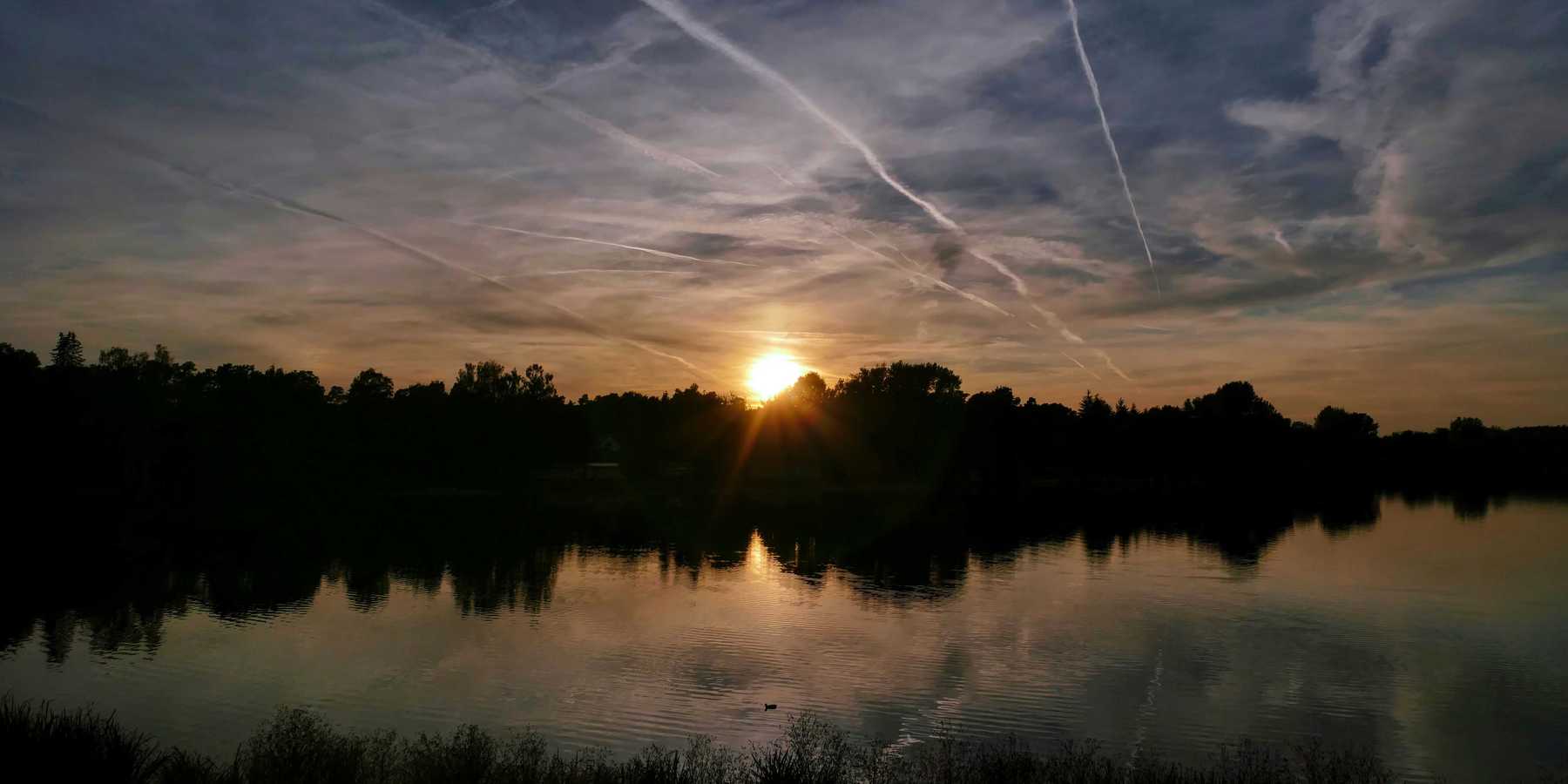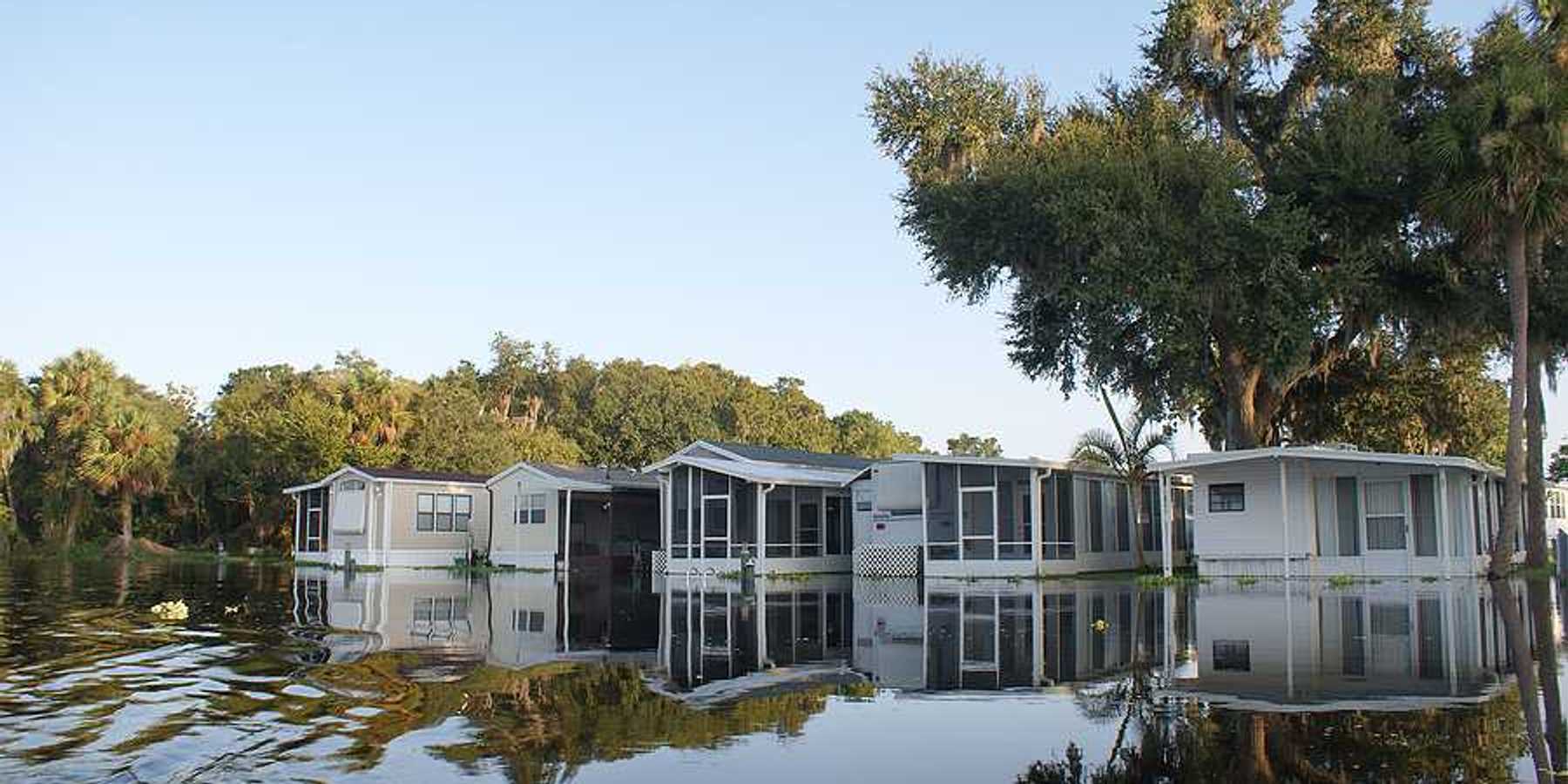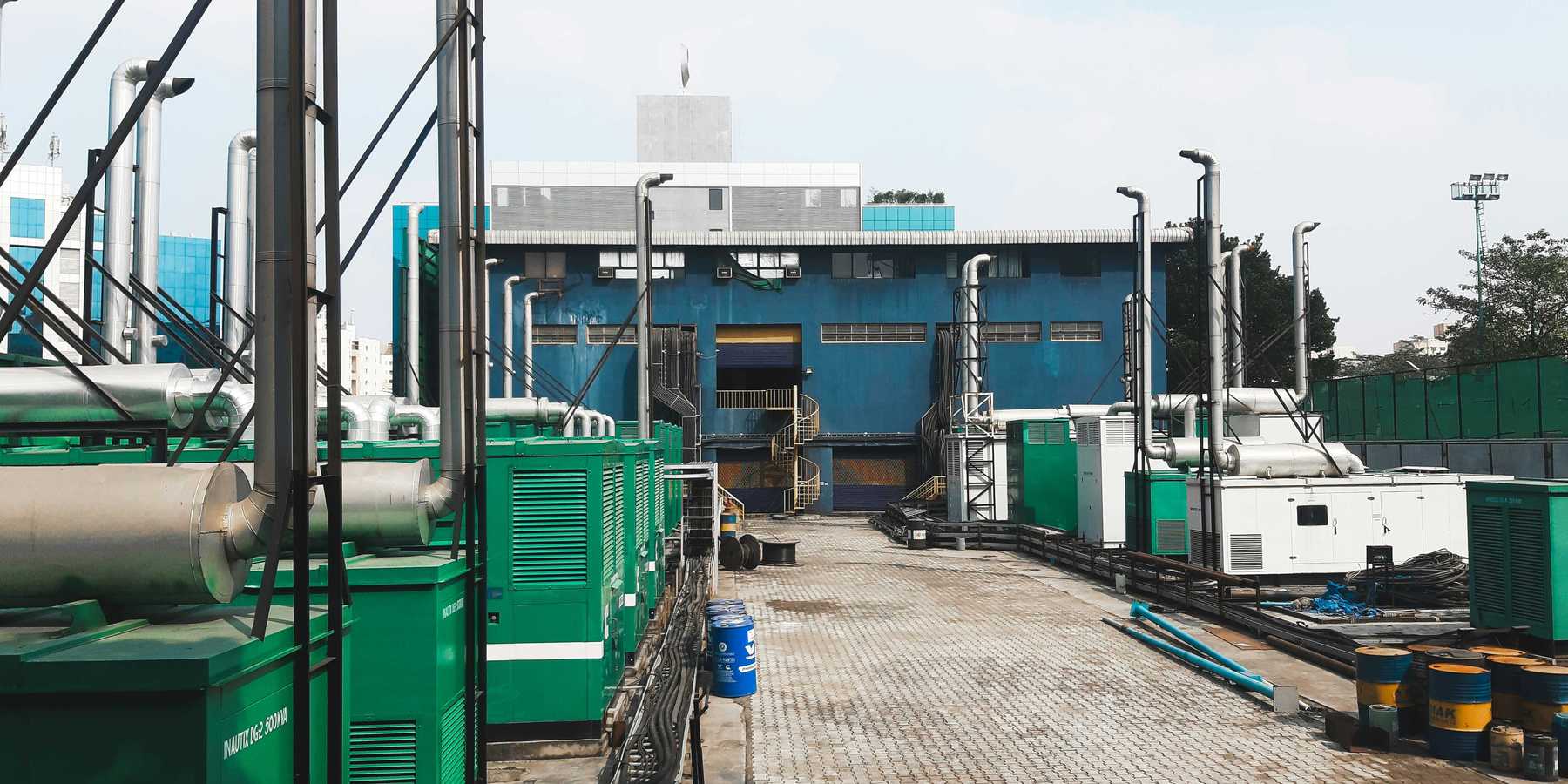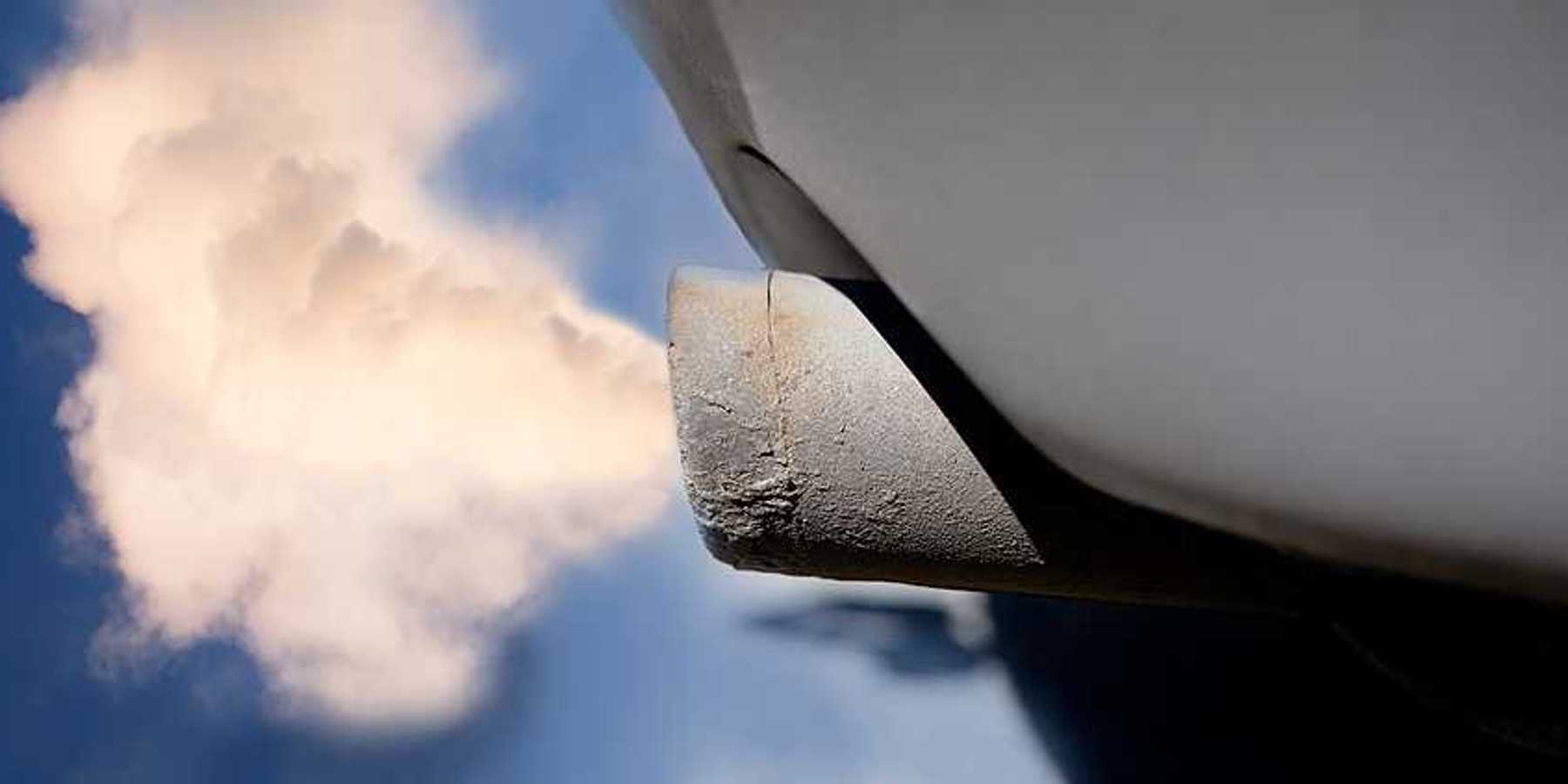LISTEN: Jalonne White-Newsome on the Biden administration’s push for environmental justice
The challenges, opportunities and victories from new White House environmental justice initiatives.
Dr. Jalonne White-Newsome joins the Agents of Change in Environmental Justice podcast to discuss the how the Biden administration is incorporating environmental justice across federal agencies.
White-Newsome is the Senior Director for Environmental Justice at the White House Council on Environmental Quality. She also talks about how growing up in Detroit shaped her, her winding career path, and how the White House and federal agencies incorporate community perspectives in federal environmental justice goals.
The Agents of Change in Environmental Justice podcast is a biweekly podcast featuring the stories and big ideas from past and present fellows, as well as others in the field. You can see all of the past episodes here.
Listen below to our discussion with White-Newsome, and subscribe to the podcast at iTunes or Spotify.
Transcript
Jalonne White-Newsome
Wonderful. How are you, Brian?
Brian Bienkowski
I'm doing great. And where are you this morning?
Jalonne White-Newsome
Today I am in my office in Washington, DC at Jackson Place, which is a part of the Executive Office of the President at the White House.
Brian Bienkowski
Well, it is such an honor to talk to you. And I'm really excited to hear about the work you're doing with the White House. But of course you're not from the DC area. You are originally from Detroit, something we have in common. So tell me about growing up there. And where environmental health injustice came into your life?
Jalonne White-Newsome
Yeah, Brian. Well, first of all, even though we're a little bit of ways from Detroit, I think Detroit is always in my heart. And I would imagine Detroit is maybe always a part of your heart, wherever you are. You know, when I think about Detroit, I think about my family, I think about my church, I think about my neighborhood, I think about the great leaders that I witnessed over the decades. I was very connected to one of the historic churches in Detroit, New Bethel Baptist Church, the home of the late great Aretha Franklin. And so really, a student of the civil rights movement and social justice movement from from my childhood. And then just being a part of a family that has always been advocates for those that didn't have voices. So we had folks staying in our home, if they didn't have a home, we prepared meals, gave food, help folks get jobs, have second chances, taking care of their family. So really this whole notion of advocacy, and helping folks and allowing folks to have a voice that didn't have a voice. And those that had somehow been kind of mistreated or misrepresented by the systems that were supposed to support them. That is inherently what Detroit made me. And I think my interest and my passion for environment, environmental protection, really started young. I was a nerd. I did a lot of science fair projects in middle school and elementary school, but then really start connecting that to people in their health in high school. When I first learned what environmental justice was working at a facility in northern Michigan, and begin to ask the questions why certain communities looked a certain way, why southwest Detroit smelled a certain way, why my great aunts on the east side seemed to have more asthma than folks in the suburbs. So kind of this inherent love for people, passion for environment and kind of really this inquisitive nature was really kind of the –I don't know – the the impetus for kind of health and environment becoming a part of my life.
Brian Bienkowski
So my first big environmental justice story was on a northern Michigan tribe fighting a mine and I had covered the Great Lakes before that. And I just – everything you said really resonates because it was covering the Great Lakes. It was a love of water and the environment and nature. And then it was realizing how, how much intersection we have with those things and how these are all stories about humans, people. So that that's just lovely to hear. So Jalonne, we've been asking everybody this question, and it's big and unwieldy. And I apologize this dropping it in your lap, but we're curious to hear about a moment or event that has helped shape your identity up to this point.
Jalonne White-Newsome
So that is a big question, because I feel like there's probably not one moment that I can name. There's been multiple moments, multiple interactions with people that have shaped who I am. But I would say in terms of the space sort of environmental justice and social justice, I would say really witnessing people experiencing, you know, life in a way that no one deserves. So my grandparents and other elders on the west side of Detroit, dealing with extreme heat and the impacts of climate change, and really not having an outlet or a set of resources to keep them safe in their own homes, because heat kills and there was a time where folks didn't realize that, you know, climate change, and extreme heat was a threat, particularly to elder folks, particularly to houseless folks, particularly to those living in the few high rises we had in Detroit. And so when I, again, witnessed that, and as a caregiver for my grandparents at that time, it was real. And so I was trying to figure out, what are the solutions? What are the policies, what are the mechanisms that can protect them, and other seniors that didn't have folks to advocate for them? And then another moment, I think that just kind of solidified in many ways the importance is, you know, I'm sure you're aware of the floods that have happened over the past several years in Detroit, and misplace and displace many families. One of those families was my parents on the east side of Detroit. They had a flood hit their home five times in two years. And just the sense of loss, the sense of trauma that came from that set of climate extreme events, not only my parents, but their neighbors, and many folks on the east side and other areas, was just like, "oh, my gosh." You know, so those moments are solidified in my mind. And really, I would say, in many ways, they're part of the drive for the work that I'm that I'm trying to do and lead at the White House.
Brian Bienkowski
And it's really emblematic that climate is is not just droughts in the southwest, or these kinds of polar bear issues that we think about, but rather industrial cities having more floods, and sewer overflows, and things like that. So I think that's really important to keep in mind here. So let's get into your career a little bit. So another thing we actually have in common is we both worked in manufacturing before our current careers, not surprising, given the state we're from. But early on, you worked as a project engineer in the chemical industry, and since then worked in environmental health and advocacy, including at WEACT for environmental justice, something that a lot of listeners are very aware of. You've also worked in research, philanthropy and now government. So what did you take away from your time in each of these roles? And how has it served you in these health and justice roles since?
Jalonne White-Newsome
Yeah, it's kind of crazy when you think about it, because you as a kid, you have this kind of trajectory that you think you're going to be on, and then life takes you on this wonderful journey that you never expected. And I would say, for each of those experiences, I've learned so much, but I'll try and start from the beginning. So again, as a chemical engineer, I had an opportunity to work in facilities that oftentimes were right up against communities of color and low income communities. We were producing things that were useful to society, but sometimes harmful, in some ways. And so what I learned very quickly, is the importance of environmental regulations, but how we even need to go a step beyond what the law is. And so being very transparent with the communities that we're working in, and building that relationship was so important, you know. I worked in facilities in Michigan, Texas, Maryland, all over the place. But that was one thing I learned very quickly: that science and data solve some things, but sometimes it's about relationship and transparency, particularly when folks might not understand what's going on right next door to them. I would say as an environmental justice advocate, I was an EJ advocate, even before I knew what EJ was, technically, or before I had an official title. But when I had an opportunity to work at WEACT for environmental justice, leading their policy office in DC – for the first time an environmental justice organization having a policy office in DC – it was an amazing opportunity. And what I learned very quickly is that the voices that needed to be a part of informing and shaping federal policy, you know, were not there in the most critical moments. And so having a presence in DC was huge. And that the beauty of coalition and the fact that you could bring together multiple voices from across this country, which we did through coalition to, you know, work to strengthen standards on particulate matter, or, you know, the Clean Water Act was amazing. And so what I learned from that is the power of coalition. And, and that even though you're coming from different parts of the country, in different geographies and separate bytes, you can come together and have a strong voice and really shape and inform how the federal government does its job. I will say in philanthropy, what again, was very striking for me, because I left, you know, WEACT for environmental justice and moved into environmental philanthropy, and, and really understood, you know, why the system sometimes doesn't work for the people that need it the most. And so what I really tried to do was, again, kind of open up this black box of philanthropy, and figure out how can we, you know, change the system in a way that more people have access to these grants and funds that are, again, have been doing great work, but have just been kind of, I don't know, nice until the conversation, you know, didn't have the right connections or the network. And so what I learned, again, is that, you know, you have to understand the system, when the system isn't working for you. And sometimes you need to have people within these institutions that have been on the other side that can kind of help, like, explain, like, there is a reason why we're not getting a certain set of applications from community-based organizations, or there's a reason why there are barriers that, you know, we don't see on the inside that we need to be aware of. So I think all those experiences have been amazing. And I think, you know, even my work in state government, as a researcher and a professor, and you know, I've been a little bit of everywhere, and what I try and do is really take pieces of those experiences, and bring that into this space now, as Federal Chief Environmental Justice Officer for the White House, because I feel like, you know, my hope is that I can do my job a little bit better, because I respect and understand and appreciate kind of the different experiences and perspectives that different folks bring, and really try and, you know, I guess, appreciate kind of the value that, you know, a community person compared to an industry person or a researcher, you know, like, like, why should they care about this environmental justice thing? Or what is that, that thing that's gonna kind of bring them over and help them kind of move this agenda that the President has set forth? So I feel like that is a little bit of my superpower, I hope, and I'm excited to, you know, just be a part of, of the White House and try and do some good work.
Brian Bienkowski
One last question. Before we get into that. You mentioned a little bit of being interested in environmental issues and public health kind of throughout your whole process, but what prompted the actual switch to get out of industry and make that your full time career?
Jalonne White-Newsome
You know, Brian, I, you know, I, for me, I never really switched. I think was so cool. And if you kind of look across now that I'm getting older, like looking across this constant thread, through my life, it has always been about health and people and justice, no matter what role I've been in. And that's what I tell a lot of my students and my mentees, like, "you can be in the chemical industry, and you can still be an advocate for environmental justice and an advocate for health." You know, you can be a researcher and create a research plan and a strategy that addresses some issues that hadn't been uncovered before. So, you know, to me, like environmental issues and public health, you know, even when I was an environmental specialist, you know, my job was to protect my guys and gals in the plant, and protect the community outside. You know, and we act, especially on a national level. So yeah, I don't think I never really switch is just, it just presents differently depending on kind of where I'm at, in my life.
Brian Bienkowski
I love that. That's a really, that's a really sharp way of looking at that, especially as you know, as a journalist, when we're trying to constantly trying to get the industry perspective, which is a lot more difficult usually than community groups who are fighting back against some of you know, whether it's pollution or climate concerns. I think that perspective is really important that we all have a role to play in environmental health and justice. So as you mentioned, you are the Federal Chief environmental justice officer for the White House Council on Environmental Quality, you are the first person to hold this position. So first off, can you tell us, if you ever if you ever thought you'd be working in the White House? And second, can you outline what role you play in shaping the Biden-Harris administration's environmental justice work?
Jalonne White-Newsome
So Brian, I will tell you, no. Never thought, never dreamed I'd be in the White House. It wasn't kind of like a part of my trajectory at all. I had always had the awesome opportunity to I connect with folks in the White House, you know, kind of advice and, you know, calling in for, you know, ceremonies and special things, but but never thought I would kind of be on this side. So it is still a little bit surreal for me.
It is such an honor and a privilege to serve at this level and, you know, be able to, in many ways, represent Detroit and represent the state of Michigan, hopefully in a good way. But I will tell you, a lot of folks don't know about the Council on Environmental Quality. And so I really, you know, don't like to assume, and usually, when I go into room, that's the first question I asked, and I might get maybe a quarter of the hands of folks that know what CQ is. So just in case: the Council on Environmental Quality, or what we call CQ, is a part of the Executive Office of the President. And so just like you have the Domestic Policy Council and the National Security Council, we have a Council on Environmental Quality, where our mission is to preserve and protect human health and environment. That's a big mission. And so we advise the President on environmental issues. And again, like you said, this is the first time with this administration, which is major, that we have an Office of Environmental Justice. And we have a dedicated group of folks that are working to advance the President's agenda. And so when I think about my team here in CQ, in the EJ team, in particular, our mission is to make sure that we get environmental justice into the fabric and foundation of the White House, and our federal agency partners like the Environmental Protection Agency, Department of Labor, etc, everybody.
And we're really trying to do that in three ways, basically, so everything we do, should fall into these buckets. One, which is most important, we're trying to reduce burdens and harm on communities that have been facing environmental injustice, point blank, we wouldn't be here, if not for that. The second thing is we want to make sure that communities are realizing the benefits of all the federal resources that are coming down the pike, which is so important. So all of the, you know, the laws and bills that brought billions of dollars, we want to make sure that communities of color and low-income communities are you know, getting some of that, that that wealth and resources. And then I would say the third thing, which I think is most important, is institutionalizing environmental justice across the federal government and really serving as a model for state and local governments. Because again, I know that I am not here in perpetuity. And I think, you know, what's important is what you leave and what your legacy is. And so that is a big piece of what we're trying to do here.
You know, again, the President has basically laid out our agenda. So we have some administrative priorities. A couple of them is the Justice40 initiative, which basically has, you know, required that all the corners of government rewire how they do things. So basically really think about, like, how can we, again, remove those barriers, internally to make sure that folks on the outside can, you know, create spaces in places that are healthy, clean and safe through grant funding, through technical assistance through all sorts of things. So the Justice40 initiative is major. And the goal is to make sure that 40% of the overall benefits of federal investments reach what we call disadvantaged communities, – so basically, those communities that had been under invested in over polluted and what I like to say, sometimes forgotten. And so we have other initiatives, our environmental justice scorecard, again, as a kind of academic, it's like you always want to have some way to to track how you're doing. And this is the first time that we have an actual scorecard that really establishes, I think, a good baseline as to what our federal agencies are doing to advance environmental justice in their own unique missions and unique way. And so that is out there. And I encourage folks to check it out. And, you know, there's another tool to make sure, again, as we try and have this lofty goal of the Justice40 initiative. You know, the one question is, well, you know, how do we know where to focus, like what communities to focus on? Well, we have a tool for that. The climate and economic justice screening to better known as the CEJST is a geospatial mapping tool, I encourage folks to to Google "C, E, J, S T," and what it does is it pulls together different indicators, climate, economic and health indicators. You know, there's a methodology that then, you know, spits out if your census tract across this country is considered disadvantaged. And you know, what this does is it is a tool that our federal agencies have to use as they're trying to meet the objectives of the Justice40 initiatives. So they know where to focus where to prioritize, you know, all the resources that are coming through their agency. So, you know, those are a couple, but I would say the other big, big one, was when the President signed last April –gosh, I can't believe it's almost been a year– the new executive board on environmental justice. And so most folks are familiar with the Clinton executive order 12-898. This one executive order 14096, President Biden signed last April. And, you know, this revitalizing our nation's commitment to environmental justice for all. And this was, again, a huge feat in so many different ways, we had so much input, and co-creation from so many different environmental justice stakeholders. And it actually, in many ways, put some teeth into a lot of the things that we have been trying to move and do over decades to advance environmental justice. So just a lot of excitement about how we're implementing that executive order. And when I say we, I mean, our federal agencies again, the EQ's role is to provide guidance and support. And so it's a lot a lot of stuff going on, Brian.
Brian Bienkowski
So with the understanding that these initiatives in themselves can be viewed as victories for the administration and your department, and also understanding that they they take some time, right to be fully implemented throughout the agencies in the US. – are there any kind of specific victories or positive outcomes, examples that you'd like to point to since your time there?
Jalonne White-Newsome
You know, so I would say, you know, off the bat, you know, one of the biggest victories is that we are here, that we have an office. And I know, it's something that, you know, maybe folks take for granted. But if you talk to some of the, you know, environmental justice leaders that have been doing this for decades, and maybe a half a century, you know, this was not always, you know, kind of reality, that could be a reality. So I want to just name that that is a victory, that remains a victory – that we are here, we have our office. I think some of maybe the understated victories is that the fact that environmental justice has never been raised to this level of attention. This administration has just like leveled up environmental justice. Like you have people, organizations, companies like talking about environmental justice that never had before. And that is a victory – just to have the conversation for people to be asking the questions. That is a sea change that has never happened before. And then the fact that with this administration, we have dollars, like, like never before, like resources dedicated to advancing environmental justice like never before. And what's cool about it, those resources are not just coming from our federal agencies, but you're seeing all our other kind of key partners in this movement, external partners, so whether it's philanthropy, or nonprofits that are kind of investing in those organizations that have been driving and trying to shift the environmental justice movement for years. And so, you know, again, to me, that is, you know, a big victory as well.
But, you know, I think some of the other victories, which we cannot not name, is really, you know, some of the things that, you know, are helping us deliver on the President's broader environmental justice agenda, which is historic. And that is the Inflation Reduction Act, right, which is the, again, the cornerstone of so much that has happened. And so when we think about this being the most significant piece of clean energy and climate legislation in US history, and this is important to me, because I remember kind of working on what was gonna be the first climate policy, and it not going through. So the fact that we have this piece of legislation that puts out $369 billion in funding to work on climate and clean energy and cut costs and reduce pollution and advanced energy efficiency, again, with this overarching goal of delivering environmental justice, that is major. So when you think about, again, the President's climate goals, and I just go back to again, my experiences with my grandparents and elders that I care about dealing with extreme heat, which was subject of my dissertation, and my parents flooded, and people I care about like this, like focus on environmental justice and climate by this administration is huge. So there's, there's a lot going on. Money going to ports, you know, when I think about a lot of the folks in California that had been dealing with those heavy-duty vehicle traffic's in the $4 billion going to clean that up, you know, planting of trees. I mean, there is there are so many seeds that I think we are planting now that are going to grow, and just keep on growing for years to come. So that is the victory, Brian, you know. Just the intangible and the tangible for me.
Brian Bienkowski
So I mentioned earlier my first story being on the shores of Lake Superior with a tribe battling a mine. And then we we spoke about Detroit, and heat waves and flooding. And this is all emblematic just in our state of how environmental injustice can take many forms, depending on the region and the groups impacted. So I'm wondering what strategies you use or your team uses to incorporate the on-the-ground concerns from across the US into environmental justice strategy and federal policy recommendations?
Jalonne White-Newsome
Yeah, so I think what, again, is cool about this administration, and, uh, you know, I think can be said as another victory, is the way that the President or Vice President have been super intentional about engaging stakeholders. So they have had town halls, they have, you know, gone to places in communities, they have set up bodies that help really advise and shape the policies of this administration. And so particularly for environmental justice, I can not not underscore the importance of the WEJACT – So the White House Environmental Justice Advisory Council. Of course, this body was created through executive order 14 008 by the President. And this body has 24 presidentially-appointed awesome environmental justice leaders that represent different stakeholders that come from different areas across this country. And all of the things that we have done in this administration, I would say, from an environmental justice perspective, have been shaped in some way, by the recommendations from the WEJACT. And they don't hold back, they are honest and speak truth to power in so many different ways. But I think they have made our our policies and our work product stronger. So in addition to the WEJACT, I would say, again, you know, we have made a, I would say, a sincere effort to, I would say, leave DC, and go into places and bring our federal agency partners along with us to really understand what's going on on the ground. And one of the things that we were able to launch last year, at the same time that the President signed the new environmental justice executive order, was the White House campaign for environmental justice. And really, the goal for this was to, you know, just this broad understanding that, you know, environmental justice is not a one-agency issue. And so if we're really going to try and advance environmental justice, first of all, we need to get out of DC and go to places and listen and learn, and really understand what's going on. But then make sure that we bring our friends with us. So CQ and you know, several other agencies have been able to go into places, whether it's Los Angeles, or Reno or Chicago, and really sit and listen, and really figure out like, how can we take all this energy that we have in this administration, all these resources and make sure that they meet people and communities where they are? So I would say, those are a couple of ways that we have tried to really, you know, again, come in and listen and be humble and realize that we don't have all the answers, and we can't solve all these issues without the expertise and the wisdom of folks that are outside these walls. So those are just a couple of ways.
Brian Bienkowski
What are some of the the ways that you feel you get to be creative in this role? I know government work can be at least viewed as very bureaucratic. And you mentioned getting out in the community. And I think that's probably a very, very good example of this. But what are some of the ways you feel like you get to be creative?
Jalonne White-Newsome
Oh, my gosh. So Brian, I feel like every day is an exercise in creativity. There is no blueprint for what we're doing. And I say that, because yes, it is exciting. But it's also – it requires a little bit of, you know, risk, a little bit of, you know, kind of ingenuity, thinking outside the box in so that is every day. Like, you know, have we had an administration that has put environmental justice at the forefront? We haven't had that before. You know, we haven't had a Justice40 initiative where we're like, "yeah, a percentage of this is gonna get to these communities that need it." We've never done that before. We have, you know, in many cases, the infrastructure to collect kind of the data and the stories and everything. It hasn't existed. And so we we have to be creative every day, we have to think out the box every day because no one has done this before, at this level. So I think the beauty of it is that we have some states and some examples, whether it be California or New York or others that you know have done some of these things that we're trying to do at a state level, but again, when you talk about kind of replicating that, you know, across the country, that takes a lot of creativity. And, you know, you know, I think we are definitely up for the challenge. But it is a, it is a wonderful experience every day, because you never know, you know what the next question will be how we get to the next, you know, step, but it keeps it exciting. And, again, just keeping in mind, the reason why we're doing this. It is not, for us, it is for the folks outside of these walls that will hopefully benefit from kind of the creativity that that we're having to lean on heavily everyday here.
Brian Bienkowski
Well, I have to say, this is one of our more hopeful podcasts so far. I really appreciate you keeping it positive. So maybe this question is a little easier than for most, what are you optimistic about?
Jalonne White-Newsome
I think it's hard to be in this role if you don't have hope. Because there are so many things that, you know, you know, sometimes you don't feel like you're making enough traction, or you're moving fast enough, or you go to one of our public meetings, and you hear folks that are, you know, dealing with the day-to-day issues of life and death. And that's hard. I'm not gonna say it's hard. And I'm not going to say, you know, that I'm totally optimistic all the time. But what I will say is that, you know, if not for us, with this conversation, with this work be elevated in a way that it needs to. So my hope is that one day, you know, we will have a public meeting, where no one has any environmental injustices to raise. And I know that we can get there. And that might seem a little pollyannish. But that is what that is what continues to drive me and gives me hope that as long as people on the outside, keep on showing up and sharing their stories, reaching out to us, wanting to meet with us and come in our office, want us to come into their community, as long as they have some hope that we can do something to change their reality. That keeps me going. That keeps me optimistic, even on some of the hard days.
Brian Bienkowski
Excellent. Well, thank you so much for that, it's really nice to get a peek behind the curtain, to some of these really high level initiatives that are going on that are just groundbreaking, frankly, and really important for the type of work that we'd like to highlight on this podcast. So we've reached with the fun portion, or at least I hope it's fun. I don't know, maybe it's not. Fun for me anyway. But before we before we let you go, I have three rapid fire questions you can just answer with one word or phrase. And then I have one final question. So first, if I have a day completely free, I am most likely
Jalonne White-Newsome
to go see a movie, go out to breakfast and hang with my family.
Brian Bienkowski
Oh, that sounds lovely. I wish I wish I could do that after this call. My first concert was:
Jalonne White-Newsome
Michael Jackson, when he came to Detroit.
Brian Bienkowski
Oh, that's a big one.
Jalonne White-Newsome
Yes!
Brian Bienkowski
That is a big one. My favorite thing to cook is:
Jalonne White-Newsome
So my grandmother, my Nana, used to make us every Sunday before church, homemade biscuits and fried green tomatoes. And so that's a tradition that I try and keep up with my daughters. So I love cooking.
Brian Bienkowski
Was she southern?
Jalonne White-Newsome
Yes, Mississippi.
Brian Bienkowski
I didn't want to show my my northern ignorance. Great. Thank you again, so much for your time today. I can't tell you enough how happy it makes me to know that somebody, not only from my hometown, but somebody that cares so much about this work, is reached the very upper reaches of government and is helping us out in this manner. So thank you so much. And last question is what is the last book you read for fun? I'm sure you have plenty of free time to just read books for fun.
Jalonne White-Newsome
Brian, first of all, thank you for just making space for this conversation. And it brings me joy and energizes me as well. But I would say my oldest daughter, my 17 year old, loves cats. And I got her this book that when I am at home that we read together every morning. It is basically a book of poems written by cats. And it is called "I could pee on this and other poems by cats" and it is lovely and funny and how we start our day.
Brian Bienkowski
What a what a lovely note to end on. Jalonne, thank you. Thank you again so much. We really appreciate your time and keep up the good work.
Jalonne White-Newsome
And all right appreciate You Brian, thank you for what you do.


